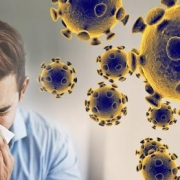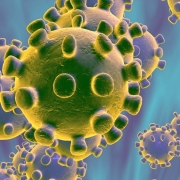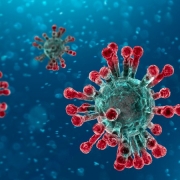Coronavirus Safety Tips
Coronavirus Safety is a very important thing, so we had a look around the net and compiled the best practices for you to best look after your health!
What can I do to protect myself and prevent the spread of disease?
Regular hand washing, covering mouth and nose when coughing and sneezing, thoroughly cooking meat and eggs.
Stand 1 meter away from anyone showing symptoms of respiratory illness such as coughing and sneezing. (WHO)
Coronavirus Safety: Protection measures for everyone
While chances of infection are low, stay aware of the latest information on on the WHO website and via news outlets.
COVID-19 is still affecting mostly people in China and some outbreaks in other countries (such as Italy)
Most people who become infected will experience mild illness and recover but will be more severe for others. So to protect yourself and those around you:
- Regularly and thoroughly clean your hands with an alcohol-based hand rub or wash them with soap and water.
Why? Washing your hands with soap and water or using alcohol-based hand rub kills viruses that may be on your hands.
- Maintain at least 1 metre (3 feet) distance between yourself and anyone who is coughing or sneezing.
Why? When someone coughs or sneezes they spray small liquid droplets from their nose or mouth which may contain virus. If you are too close, you can breathe in the droplets, including the COVID-19 virus if the person coughing has the disease.
- Avoid touching eyes, nose and mouth.
Why? Hands touch many surfaces and can pick up viruses. Once contaminated, hands can transfer the virus to your eyes, nose or mouth. From there, the virus can enter your body and can make you sick.
- Make sure you, and the people around you, follow good respiratory hygiene. This means covering your mouth and nose with your bent elbow or tissue when you cough or sneeze. Then dispose of the used tissue immediately.
Why? Droplets spread virus. By following good respiratory hygiene you protect the people around you from viruses such as cold, flu and COVID-19.
Coronavirus Safety: Protection measures for everyone cont.
- Stay home if you feel unwell. If you have a fever, cough and difficulty breathing, seek medical attention and call in advance. Follow the directions of your local health authority.
Why? National and local authorities will have the most up to date information on the situation in your area. Calling in advance will allow your health care provider to quickly direct you to the right health facility. This will also protect you and help prevent spread of viruses and other infections.
- Stay informed on the latest developments about COVID-19. Follow advice given by your healthcare provider, your national and local public health authority or your employer on how to protect yourself and others from COVID-19.
Why? National and local authorities will have the most up to date information on whether COVID-19 is spreading in your area. They are best placed to advise on what people in your area should be doing to protect themselves.
Protection measures for persons who are in or have recently visited (past 14 days) areas where COVID-19 is spreading
- Follow the guidance outlined above. (Protection measures for everyone)
- Stay at home if you begin to feel unwell, even with mild symptoms such as headache and slight runny nose, until you recover.
Why? Avoiding contact with others and visits to medical facilities will allow these facilities to operate more effectively and help protect you and others from possible COVID-19 and other viruses.
- If you develop fever, cough and difficulty breathing, seek medical advice promptly as this may be due to a respiratory infection or other serious condition. Call in advance and tell your provider of any recent travel or contact with travelers.
Why? Calling in advance will allow your health care provider to quickly direct you to the right health facility. This will also help to prevent possible spread of COVID-19 and other viruses.
Are antibiotics effective in preventing or treating the COVID-19?
No. Antibiotics do not work against viruses, which COVID-19 is, they only work on bacterial infections.
Should I wear a mask to protect myself?
If you do not have any respiratory symptoms (cough) you do not need to wear a mask. WHO suggest the use of masks for those who have symptoms (Coughs/Fevers)
While the use of masks is crucial for health workers and those who are taking care of someone, such as those living at home with you if you are infected.
WHO advises rational use of medical masks to prevent wastage of resources.
Coronavirus Safety: How long does the virus survive on surfaces?
It is not known how long the virus that causes COVID-19 survives on surfaces. However it seems to behave like other coronaviruses.
Other coronaviruses last on surfaces for a few hours up to a several days, depending on conditions such as type of surface, temperature and humidity of the environment.
Use simple disinfectant to kill the virus if you think a surface has become infected. Clean your hands with an alcohol-based hand rub or wash them with soapy water. Avoid touching your eyes, mouth, or nose.
Coronavirus Safety: Is there anything I should not do?
The following measures ARE NOT effective against COVID-2019 and can be harmful:
- Smoking
- Taking traditional herbal remedies
- Wearing multiple masks
- Taking self-medication such as antibiotics
Sources:
World Health Organization 1 / 2 / 3 / 4
Listen to the guys chatting about this by clicking here!
Keep up to date with everything How To Kill An Hour by signing up to our newsletter by clicking here!
Let us know what you think of the show by clicking here!
Click here to subscribe to our YouTube Channel to see more amazing ways to kill time!
Follow us on Twitch by clicking here!



